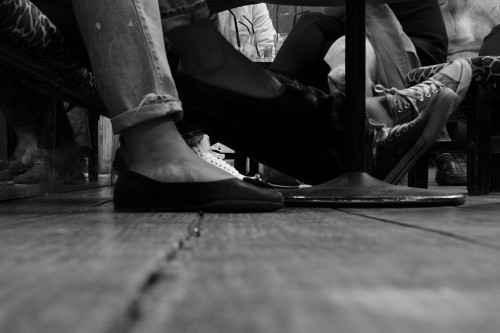Alcohol dependency in adolescence, however not consumption, linked with later melancholy threat

Adolescents who present indicators of alcohol dependence usually tend to develop melancholy by their mid-20s, in keeping with a brand new examine led by College of Bristol and UCL researchers.
Ingesting giant quantities of alcohol repeatedly, however with no indicators of dependency, didn’t predict melancholy threat, in keeping with the findings revealed in The Lancet Psychiatry.
Dr Gemma Hammerton, Analysis Fellow at Bristol Medical Faculty: Inhabitants Well being Sciences (PHS) and co-lead creator, stated: “Whereas we discovered that alcohol consumption alone didn’t seem to extend the chance of melancholy, heavy consuming is usually a precursor to dependence, and might have dangerous bodily well being impacts in the long term as effectively. Excessive frequency and amount of alcohol consumption subsequently stay vital as targets to stop or cut back throughout adolescence.
“Public well being interventions to stop melancholy may goal problematic alcohol use (resembling if alcohol is having a unfavorable influence on an individual’s private relationships or obligations), which is more likely to happen earlier than dependence, and contain excessive frequency and amount of consumption.”
The examine concerned 3,902 people who find themselves a part of the Kids of the 90s start cohort examine (Avon Longitudinal Research of Mother and father and Kids – ALSPAC), a longitudinal cohort of fogeys and their kids born within the southwest of England in 1991 and 1992, who’ve been surveyed at common intervals.
This paper appeared on the affiliation between alcohol consumption and indicators of problematic consuming, or dependence, at age 18, and melancholy six years later at age 24.
Alcohol dependence indicators embrace an incapacity to cease consuming, failure to fulfill regular expectations as a result of consuming, and feeling a have to drink after a heavy session, in addition to dangerous results resembling drink-related reminiscence loss.
The researchers discovered that individuals who gave the impression to be depending on alcohol at age 18 (or at any age from 17 to 22) have been extra probably than their friends to have melancholy at age 24. These with a rating of zero on the alcohol dependence scale at age 18 face an 11% chance of melancholy by age 24, in comparison with 15% for these with a rating of 1 on the dimensions (a rise from zero to at least one on the alcohol dependency scale represents a 28% improve within the chance of not with the ability to cease consuming as soon as began and a 33% improve within the chance of failing to do what was usually anticipated of you). This relationship remained after they adjusted for potential confounding elements resembling substance use and depressive signs at age 16, suggesting that there could also be a causal relationship between alcohol dependence and subsequent melancholy that’s not defined by poor total psychological well being in adolescence.
The researchers discovered that consumption ranges alone weren’t related to an elevated threat of melancholy, which they are saying could also be partly as a result of the truth that consuming in late adolescence is commonly tied with social contact and displays social norms.
Dr Gemma Lewis, co-lead creator at UCL Psychiatry, stated: “By utilizing a big, longitudinal dataset, we have now discovered proof that problematic consuming patterns in late adolescence could improve the chance of growing melancholy years later.
“Problematic consuming patterns may very well be a warning signal of future psychological well being issues, so serving to younger individuals to keep away from problematic alcohol use may have long-term advantages to their psychological well being.”
The examine was funded by the Medical Analysis Council and Alcohol Analysis UK (now Alcohol Change UK).
Mark Leyshon, Senior Analysis and Coverage Supervisor at Alcohol Change UK, added: “Alcohol consumption amongst 18 to 24-year-olds has been falling for a while. Nonetheless, there stays a big variety of younger individuals who use alcohol in a dangerous approach. There have been over 40,000 alcohol-related hospital admissions amongst beneath 24s in 2019, and greater than 1 / 4 of those have been for psychological and behavioural issues on account of alcohol. The findings from this new examine reinforces the significance of defending younger individuals from alcohol hurt, via early intervention and correct funding of youth addictions companies in order that the fitting assist and remedy is there for everybody who wants it.”
Paper:
‘The affiliation of alcohol dependence and consumption throughout adolescence with melancholy in younger maturity: a potential cohort examine in England’ by Gemma Hammerton, Gemma Lewis, Jon Heron, Gwen Fernandes, Matthew Hickman, Glyn Lewis in The Lancet Psychiatry

